Survey Finds Interest in Telemedicine Surging, Growth in High-Deductible Health Plans Stalls After Reaching Record High Last Year
WASHINGTON – December 2, 2021 – The 17th annual “Consumer Engagement in Health Care Survey” (CEHCS), a survey of privately insured adults conducted by the Employee Benefit Research Institute and Greenwald Research, finds interest in telemedicine options doubled between 2017 and 2021. Satisfaction with telemedicine visits was high, with three-quarters stating they were satisfied or very satisfied.
The CEHCS provides reliable national data on the growth of consumer-driven health plans and high-deductible health plans (HDHP) and their impact on the behavior and attitudes of health care consumers. This year the survey finds enrollment in health savings account (HSA)-eligible health plans and health reimbursement arrangements dipped one point to 18 percent in 2021, after reaching a record high in 2020. Likewise, enrollment in health plans with high deductibles that were not eligible to be paired with an HSA account fell modestly from 15 percent to 13 percent.
The CEHCS also finds traditional plan enrollees are more satisfied than HDHP enrollees with their overall health plan, with 63 percent of traditional plan enrollees being extremely or very satisfied, compared with 44 percent of HDHP enrollees. The difference in satisfaction appears to be the result of out-of-pocket spending for prescription drugs and medical services, as there is no difference in satisfaction concerning the quality of care received, ease of getting appointments, or choice of doctor. However, satisfaction levels among HDHP enrollees nearly doubles when tenure with their health plan goes from less than one year to three or more years. In this case, the percentage reporting they are extremely or very satisfied with their health plan increased from 30 percent to 54 percent. In contrast, among traditional plan enrollees, satisfaction increased from 60 percent to 66 percent.
What’s Important when Choosing a Health Care Plan?
When it comes to their health plan, most people surveyed placed great importance on the network of health care providers, prescription drug coverage, low out-of-pocket costs, low premiums, and a simple to understand program. “Generally, traditional plan enrollees and High-Deductible Health Plan (HDHP) enrollees ranked these aspects of health care in the same order, with one exception,” said Paul Fronstin, EBRI Director of the Health Research and Education Program, and co-author of the report. “Traditional plan enrollees reported that low out-of-pocket costs for doctor’s visits were more important, with the low cost of premiums being less important when selecting a plan. However, HDHP enrollees indicated that low premiums were more important than low out-of-pocket costs when selecting a plan.”
HSAs Used in Variety of Ways
More than half of those reported using their HSA to pay for current out-of-pocket expenses. Nearly one-half (47 percent) were using HSAs to cover unexpected medical expenses, while 44 percent reported using their HSA to save for health care expenses in retirement. Almost 40 percent were using them to minimize taxes. About one-third were using them to pay for a mix of short-term and long-term health care expenses or to reimburse themselves for out-of-pocket expenses when they needed the money. Just over one-quarter (28 percent) were using them to invest.
“Our latest research finds that those with HSAs use these accounts in a way that best suits their perceived needs,” said Lisa Weber-Raley, Chief Research Officer, Greenwald Research. “In the future, employers may consider providing additional information to their employees, as many survey respondents mentioned they would be more likely to accumulate and invest unused funds if they were provided an annual review of their HSA balance, and one-quarter would be more likely to accumulate and invest unused funds if they were able to access information about the account benefits and how it works online.”
“The 2021 Consumer Engagement Health Care Survey” is available at https://www.greenwaldresearch.com/cehcs and https://www.ebri.org/cehcs-2021. The survey was underwritten by Blue Cross and Blue Shield Association, CareFirst, HealthEquity, Inc., Prudential Financial, Segal, TIAA, UMB Financial, and Voya Financial.
About the Consumer Engagement Health Care Survey (CEHCS):
The 2021 CEHCS was conducted within the United States between Aug. 2 and Sept. 7, 2021, through a 14-minute internet survey. The national or base sample was drawn from Dynata’s online panel of internet users who have agreed to participate in research surveys. Adults ages 21−64 who had health insurance through an employer, purchased directly from a carrier, or purchased through a government exchange were drawn randomly from the Dynata sample for this base sample. This sample was stratified by gender, age, region, income, education, and race. In previous years, the survey was fielded using Ipsos’ panel. There were over 1,216 national sample completes, 735 CDHP completes (223– national; 512– oversample), and 472 HDHP completes (176– national; 296– oversample). The national sample is weighted by gender, age, income, ethnicity, education, and region to reflect the actual proportions in the population.
About Greenwald Research:
Greenwald Research is a leading independent custom research firm and consulting partner to the health and wealth industries that applies creative quantitative and qualitative methods to produce knowledge that helps companies stay competitive and navigate industry change. By leveraging deep subject matter expertise and a trusted consultative approach, Greenwald offers comprehensive services for weaving rich research stories that answer strategic business questions. Visit greenwaldresearch.com to learn more.
Lisa Weber-Raley
Chief Research Officer
Greenwald Research
lisaweber@greenwaldresearch.com
202-686-2510
About EBRI:
The Employee Benefit Research Institute is a private, nonpartisan, nonprofit research institute based in Washington, DC, that focuses on health, savings, retirement, and economic security issues. EBRI conducts objective research and education to inform plan design and public policy, does not lobby and does not take policy positions. The work of EBRI is made possible by funding from its members and sponsors, which include a broad range of public, private, for-profit and nonprofit organizations. For more information go to www.ebri.org.
Betsy Jaffe
Director, Marketing and Public Relations
Employee Benefit Research Institute
press-media@ebri.org
202-775-6347








